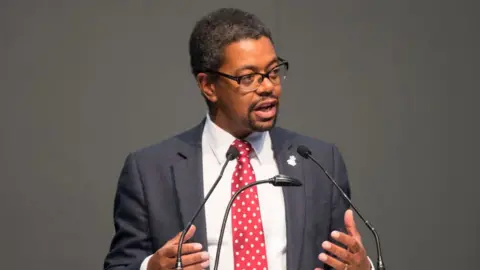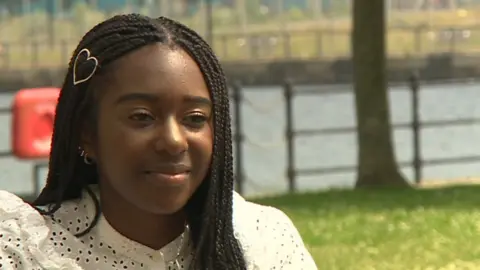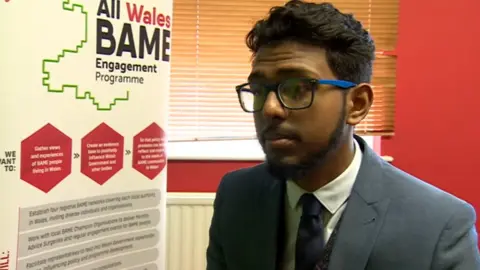BAME appointments: Welsh Government 'must do more'
 Getty Images
Getty ImagesThe number of people from minority ethnic backgrounds appointed to roles in public life in Wales is not good enough, a senior minister has said.
In 18 months, out of 170 appointments to public bodies by Welsh ministers, fewer than six were from black, Asian and minority ethnic (BAME) backgrounds.
Health Minister Vaughan Gething said the Welsh Government was looking again at the public appointments process.
Ministers recognised "that there is something to do", he said.
Despite making up 5% of Wales' population, BAME people are under-represented on public bodies.
Welsh Government figures show that, in the 18 months to March, BAME people accounted for between one and five of 170 public appointments.
Ministers make public appointments to boards that take decisions about how public services are run.

A mentoring scheme run by the charity Ethnic Minorities & Youth Support Team (EYST) is trying to rectify the imbalance.
It matches young BAME people in the early stages of their career with more established individuals from a range of public and private sectors - including AMs and members of charity boards.
Former NUS Wales women's officer Chizi Phiri, 23, is one of those taking part in the project.
Her ambition is to enter politics, but she is concerned about the racist abuse of black women in prominent positions.
Ms Phiri said: "You can only look at someone like Diane Abbot, and see what she faces.
"Anyone that wants to have a career in public life - who wants to stand and make a difference in their community - should feel empowered to do so, regardless of whether they are going to face racism or sexism.
"Having a mentoring programme like this, where you can meet like-minded people who maybe have been through those experiences, really helps."
Mr Gething - one of the mentors supporting the scheme - said: "I have already started a review within the health department, but I know the equalities minister is leading a group on wider work across public appointments, because if you just say what we have is good enough - and it plainly isn't - you're never going to resolve the problem.
"So the Welsh Government accepts and recognises that there is something to do, and we are actively looking at how we do that."

Another participant in EYST's scheme, Tafsila Khan, who is visually impaired, said: "I just want to make everyone's life better and feel more included in the community, and feel more equal in society."
Nirushan Sudarsan, 19, who is starting at Cardiff University in September, wants a career in the police or in the civil service.
He said the scheme was "a chance for me to... improve myself in getting involved in public life".
Mr Sudarsan said he hoped his own success could "inspire other generations, younger generations, to apply".
